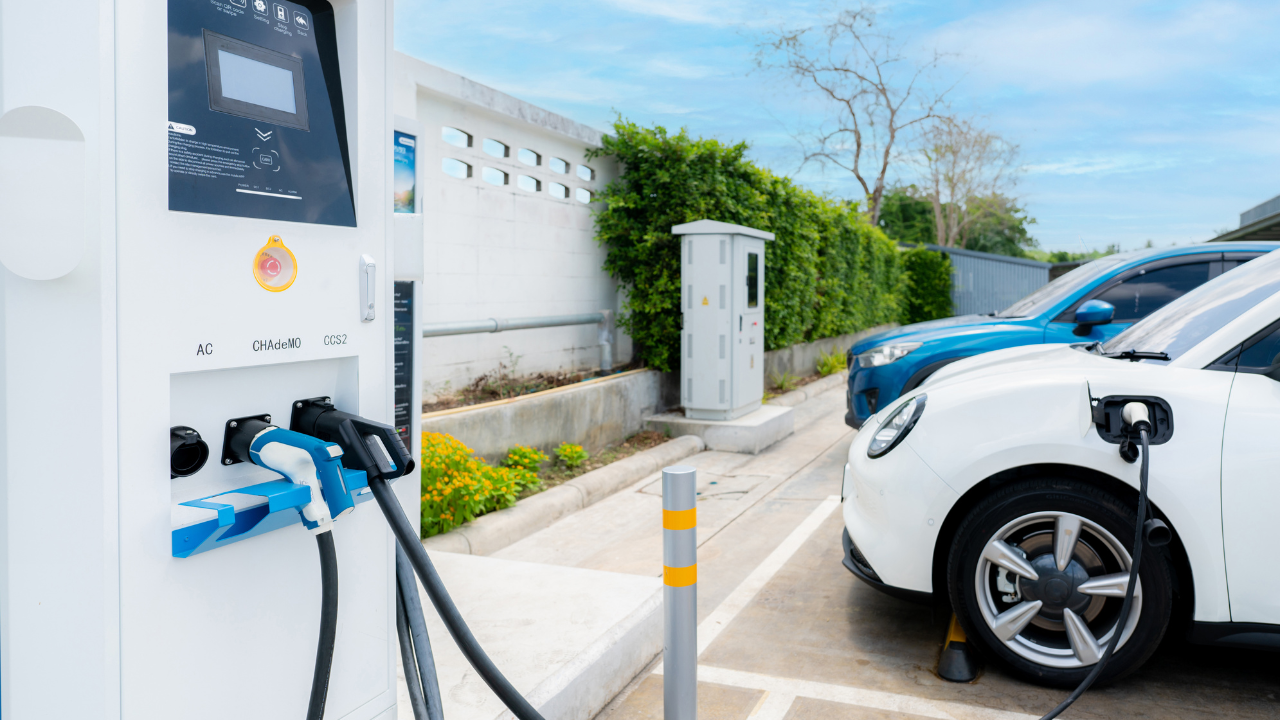
Electric vehicles (EVs) are the key to revolutionising travel by shifting the focus from traditional internal combustion engines to refined, electrically powered systems. This much-needed transition is driven by the need for environmental stewardship and the multifaceted benefits that EVs offer individuals and society at large.
From economic savings to improved performance, the advantages of electric vehicles provide strong evidence in favour of their adoption as the future standard of personal and public transport. If you’re curious to know what these advantages are, keep reading below:
Charging Convenience
Owning an electric vehicle comes with the convenience of being able to charge their car at home. This capability saves time and guarantees the vehicle is fully charged and ready for use. If you’re worried about being on the road but need to plug in your car immediately, this is no cause for worry, as there is a growing network of public charging stations across Europe. Charging stations can be found in centres,petrol stations, and government offices, which enables more accessible and more flexible travel for EV owners.
In fact, many employees and companies these days are promoting EV charging in the workplace since it supports the adoption of electric vehicles. So, if you’re an employer or a business owner who’s considering having an EV charging station in the workplace, search for “EV charger installation near me” and look for EV charger options that are available to ensure you and your employees can access convenient charging facilities even at work.
Lower Operating Costs
One of the most evident benefits of EVs is the reduction in operating costs for owners. Electricity typically costs significantly less than petrol or diesel per mile. This disparity can mean increased savings for EV owners, who can recharge their vehicles at home or at work at a fraction of the cost of refuelling a conventional combustion engine car. The efficiency of electric motors means that EVs convert a higher proportion of the electrical energy from the grid into power to drive the wheels, which leads to lower energy costs for the same distance travelled.
Reduced Maintenance Expenses
The simplicity of the build and mechanisms in a standard EV can lower maintenance costs since they have fewer moving parts than their internal combustion counterparts. Those who own a traditional gas car are probably familiar with all the standard maintenance routines like oil changes, fuel filters, spark plug replacements, and emission checks. If you switch to EV, you won’t have to pay for any of those anymore. Moreover, the regenerative braking systems that recover energy lost during braking further reduce wear and tear on brake pads and discs. This mechanism extends their life and decreases the frequency and cost of replacements.
Improved Performance
Electric motors provide instant torque that immediately delivers power to the wheels and enables EVs to accelerate from a standstill faster than many petrol or diesel vehicles. This feature can enhance your driving experience and contribute to the practical advantages of EVs in urban areas, where quick acceleration can be beneficial. The placement of batteries in EVs (typically found underneath the floor of the car) also lowers the vehicle’s centre of gravity, which improves handling and stability and makes for a more enjoyable and smoother drive.
Energy Independence
EVs can actually help countries reduce their vulnerability to foreign energy price fluctuations and supply disruptions by decreasing reliance on imported petroleum. This shift towards electric mobility supports the diversification of energy sources, with electricity generated from various domestic resources, including nuclear, hydro, wind, and solar. Therefore, the move towards EVs has implications for individual consumers and the broader economic and geopolitical setting by boosting a nation’s economic security.
Noise Reduction
Noise pollution in the streets, which is often perpetuated by traditional cars, has been a growing problem in many major cities worldwide. The high noise levels can lead to elevated stress and agitation for drivers and pedestrians, creating a more chaotic atmosphere. It’s a good thing that EVs operate almost silently on the road, unlike their internal combustion counterparts. This noise reduction contributes to quieter urban areas and can significantly improve city residents’ quality of life and well-being.
Innovation and Development
Consistent innovation and evolution drive society forward and pushes everyone to discover new things and gather novel information. The promotion of electric mobility facilitates the development of innovative technologies, from wireless charging to improvements in energy storage, which have applications beyond the automotive industry.
This focus on innovation not only improves the performance and cost-effectiveness of EVs but also contributes to the wider economy by creating new industries and job opportunities. This technological ripple effect can eventually spur economic growth and support the shift to a more sustainable and efficient energy system.
Health Benefits
Electric vehicles help reduce the pollutants emitted by traditional combustion engines because they lack tailpipe emissions. The carbon and nitrogen emissions caused when Internal combustion engine vehicles burn gasoline or diesel can cause adverse health risks with prolonged exposure.
Conversely, EVs don’t produce the harmful pollutants associated with the combustion of fossil fuels, which are known to have detrimental effects on both air quality and public health. Decreased air pollution and cleaner air can reduce respiratory and cardiovascular conditions attributed to poor air quality, such as asthma, bronchitis, and heart disease. It can also mean fewer hospital admissions and a healthier population overall.
The Journey to the Future Led by Electric Vehicles
The growing movement to adopt EVs as the norm for transportation has promoted it from being an alternative to becoming a definitive choice for progressive, efficient, and sustainable travel. This gradual transition to EVs is also a testament to the potential for technological innovation to drive real positive change where people can openly enjoy the benefits of owning an EV. The time for you to consider switching to an electric vehicle is now, as a society collectively steers towards a brighter future on the road ahead.
See some more of my automotive posts here
